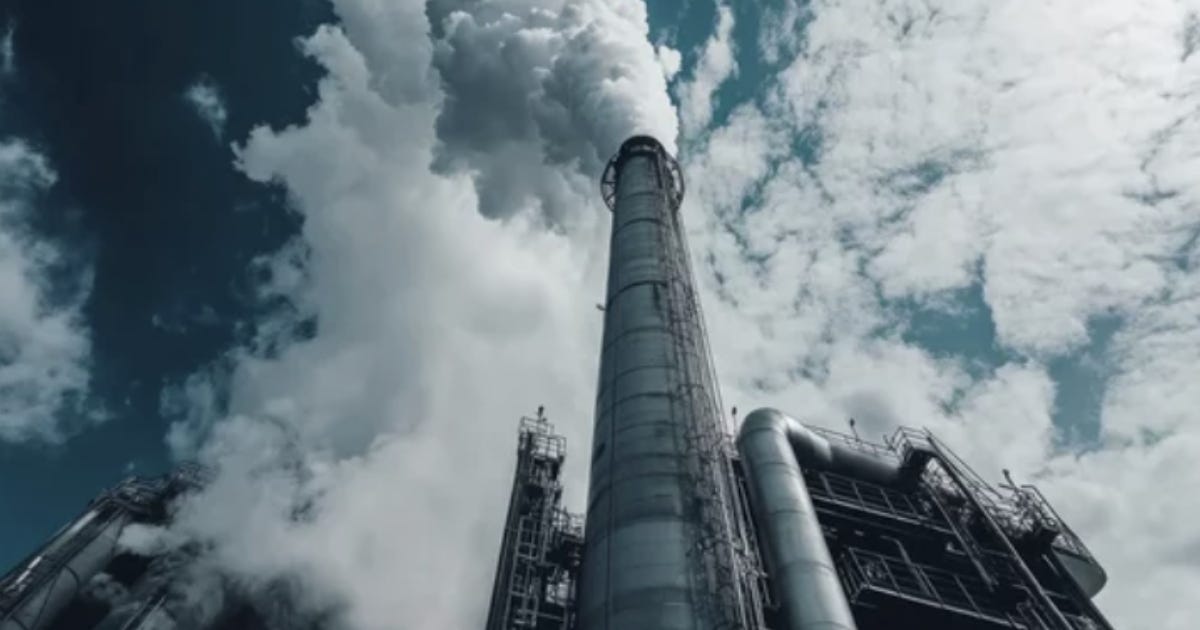Smith unveils updated rules for industrial emission reduction program
Alberta will update its industrial emissions reduction program this fall, allowing large industrial facilities to reinvest compliance dollars directly into on-site emissions reduction projects.
Alberta will update its industrial emissions reduction program this fall, allowing large industrial facilities to reinvest compliance dollars directly into on-site emissions reduction projects. It will also include an exit option for smaller operators.
Premier Danielle Smith says the changes are meant to keep Alberta’s energy sector competitive while maintaining environmental progress.
“TIER has always been about Alberta leading the way — proving to the world that it’s possible to increase energy production, grow the economy and lower emissions at the same time. These amendments build on that success by giving industry the certainty and flexibility they need to invest right here at home,” said Smith.
While speaking at a Tuesday press conference, Smith stressed that the new rules allow companies to meet up to 90 per cent of their compliance obligations through direct investment in technology at their facilities, rather than paying into the provincial fund.
“It will incentivize companies to spend money here in Alberta on emissions reductions, investments specific to their projects without burdensome regulation, or government choosing winners or losers,” she said.
Environment Minister Rebecca Schulz said the update follows industry concerns raised during consultations in the spring. The government heard from both payers and beneficiaries of carbon credits through the system.
“We also heard about the challenges of changing trade agreements, disruptive tariffs, rising costs. Of course, we heard about the layering of anti-industry federal environmental policies. These are hurting our competitiveness when it comes to attracting investment and producing environmentally responsible energy,” said Schulz.
She added that the new compliance option is meant to balance economics and emissions reductions:
“Instead of sticking to two compliance options, which is by paying a levy or using credits to offset their emissions, enabling companies to reinvest in their own facilities and choose the on-site technologies that work best for them. This helps with the economics of production, but also emissions reduction.”
Schulz said the updates will respond to the province’s current situation. She reiterated that Alberta would maintain its leadership, which has led countries like Japan and Germany to approach it to meet their energy and environmental goals.
Energy Minister Brian Jean said the province’s energy record supports the shift.
“TIER has played a critical role in helping Alberta energy be the most responsibly produced energy in the world. These changes will further allow our major energy companies to increase production and finance new world-leading emission reduction efforts consistent with Alberta’s Emissions Reduction and Energy Development Plan,” he said.
Industry groups welcomed the move.
“Pathways Alliance appreciates the Government of Alberta’s efforts to support the oil sands industry and protect jobs. Direct investment through the TIER system is expected to encourage continued investment in emission reduction technologies, and advance innovative infrastructure,” said the President of Pathways Alliance, Kendall Dilling. “The oil sands industry looks forward to ongoing work with governments to strengthen global competitiveness and attract investment.”
Since 2019, the TIER fund has allocated $1.6 billion to geothermal, hydrogen, methane reduction and carbon capture projects. These initiatives are projected to reduce emissions by 70 million tonnes and support 21,000 jobs by 2030.
Alberta established North America’s first industrial carbon pricing and trading system in 2007. Industries regulated by TIER include oil and gas, oil sands mining, forestry, electricity and minerals.
Earlier this year, the province froze the industrial levy on emissions at $95 per tonne, in response to the tariff war.
“Alberta remains committed to reducing emissions through the development and implementation of new technologies, not unrealistically high taxes, while responsibly powering the world for decades to come,” said Smith upon the tax pause.




WHAT DO LIVING PLANTS NEED C02!!
Be careful on how far you want to reduce plant food!!